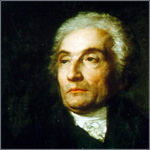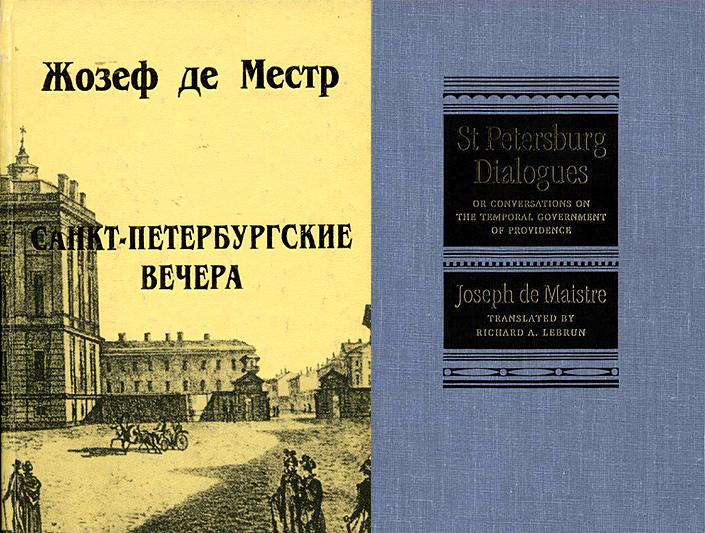Joseph de Maistre

Diplomat, political philosopher
Born: Chambery, Kingdom of Piedmont-Sardinia - 1 April 1753
Died: Turin, Italy - 26 February 1821
One of the most prominent philosophers of counter-revolutionary and monarchist thought after the French Revolution, an inspiration to Charles Baudelaire and Leo Tolstoy, and widely considered one of the fathers of European conservatism, Joseph-Marie, Comte de Maistre, was Ambassador to the Russian Imperial Court for the Kingdom of Piedmont-Sardinia for 15 years, and it was in St. Petersburg that he wrote many of his most famous works.
Joseph de Maistre was born in the Duchy of Savoy, the son of a magistrate and senator who had been ennobled by the King of Piedmont-Sardinia. After studying law at the University of Turin, he followed his father into the senate and initially supported political reforms in France, but became an outspoken critic of the Revolution after his family estates in France were seized and he was forced to flee Chambery by the invading revolutionary army. He began his writing career and became a prominent intellectual figure in emigre circles, eventually joining the Sardinian court-in-exile in Cagliari. From there he was sent to St. Petersburg as ambassador to Alexander I in 1803.

He was a popular figure among St. Petersburg high society and, with few diplomatic responsibilities, was able to devote himself to his writing, producing his influential Essai sur le principe generateur des constitutions politiques et des autres institutions humaines (1809), first published in St. Petersburg, and his translation of Plutarch's On the delay of divine justice (1815). According to Isiah Berlin, de Maistre's commentaries on Russian life were used by Leo Tolstoy as source material for War and Peace, and he has also been cited as a major influence on the early Russian philosopher Pyotr Chaadayev and the mystical Romantic poet Fyodor Tyutchev. With the defeat of Napoleon and the return of the House of Savoy, Maistre returned to Turin in 1817. There he served as a magistrate and minister of state until his death in 1821.
Selected Works: Essai sur le Principe Générateur des Constitutions Politiques (St. Petersburg, 1809), Les Soirées de Saint-Pétersbourg ou Entretiens sur le Gouvernement Temporel de la Providence (Paris, 1822), Lettres et Opuscules Inédits du Comte Joseph de Maistre (Paris, 1853), Mémoires Politiques et Correspondance Diplomatique (Paris, 1858)

